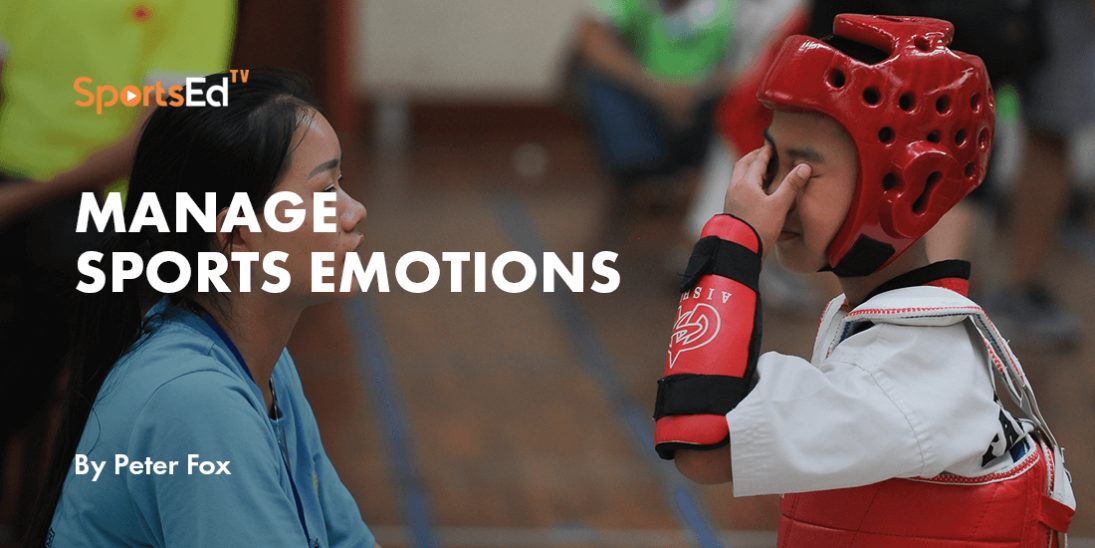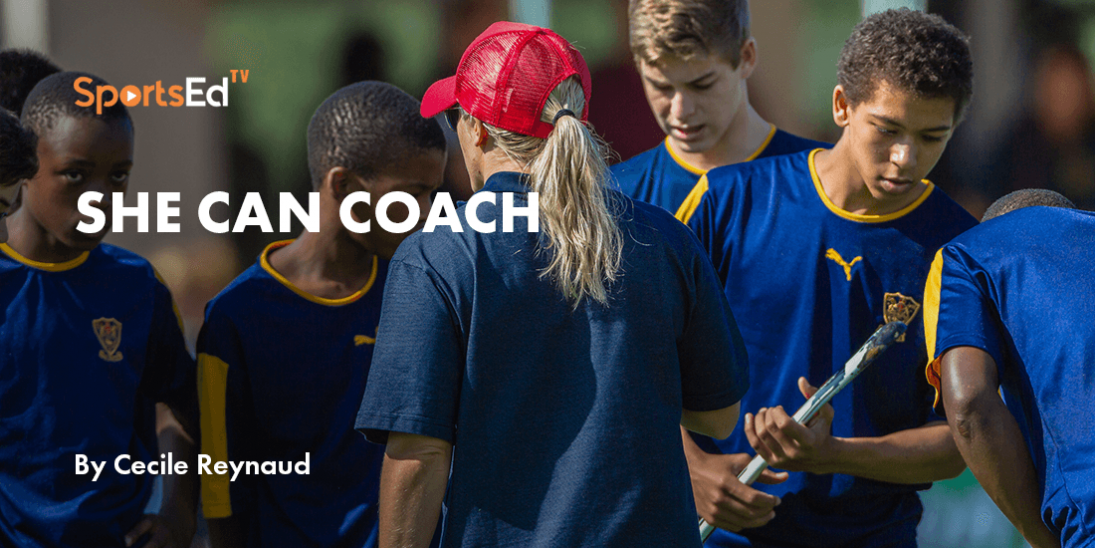Taekwondo
Welcome and thanks for visiting...

SportsEdTV Talks To Aaron Cook
SportsEdTV: Hello, everyone, and welcome to Sports, said TV. Today, we're talking taekwondo, and we are doing so with Aaron Cooke, the triple European champion. We have the chance and honor to have you with us. Aaron, thank you so much for joining us.
Aaron Cook: Thank you very much for having me, guys. It's a pleasure to be on here with you talking about spins today. I'm really excited to go through some of these tips and tricks and remember some of these shots.
SportsEdTV: So right before diving into the topic of the day, let's talk a little bit about you. We are all curious to know about dealing with the Covid pandemic for Olympic athletes. You are trying to qualify for the Tokyo Olympic Games. They didn't happen. So can you give us just a little bit about a perspective from your athlete life, trying to pursue your dream? How has it been dealing with that Covid situation?
Aaron Cook: It's been extremely difficult for everybody all around the world. This is something most of us or all of us have never experienced before. We've been hit very, very hard with it. We've been in lockdown after lockdown. We've had to adapt our training many, many different times. The first lockdown, t was fortunate. I was locked down with Bianca and Jade. So I was able to train together with, you know, two of the best women in the sport. So that was fantastic. It was about three months that we were locked down together.
Then it opened back up a little bit and we were back to training a little bit normal. But then all these competitions start getting canceled left, right and center. And, then the Olympics got postponed. So it was a very, very difficult time when that happened for me and obviously for Bianca and Jade, you know, having to wait another year for an Olympics.
There were difficult days with motivation and, diet and things like that. We went through some very hard times, but now we're back on track where This is our third lockdown we're in currently, but we're still allowed to go to the center and train as elite athletes. . We're still allowed to train. So that's been a blessing.
Obviously, competitions. We still haven't been able to do any competitions this year, but we're looking forward to the European Championships first. That might be my first one of this year.
Just to blow those cobwebs off is probably going to be close to nearly two years since I've competed, which is, you know, pretty scary, to be honest. But, training is going well now. My motivation is back. My diet is under control and am just focused for the European Championships and Olympic qualification, obviously. And we hope and pray that the Olympics goes ahead and will be there all together.
SportsEdTV: Do you have to innovate within things you can control and things you don't control?
Aaron Cook: So how you be able to innovate throughout this process of staying engaged. We've had to train in garages. Jade and Bianca, they turned their garage into a gym. You know, we had to adapt that way. We were allowed to go outside for exercise. So we started doing more running. Then when the second lockdown happened, I converted my garage into a small little gym, and me and Bianca were training together.
And now, fortunately, we're able to use the gym and the facilities. Obviously, the great taekwondo center has been a massive help. But still, just like you said, having to adapt to training. We still have to train. And in certain groups in pods, we're not allowed to train the whole team altogether.
So that can be difficult. You don't have partners. We haven't been able to go on training camps. We haven't been able to have people over to train where we are in our competitions. So it's been difficult. It's been a really, really difficult, difficult situation.
They're trying to be in peak condition and train for an Olympic Games. We're training full on trying to get ourselves ready to run and still go through all these different periods that we go through in training. Training is getting harder and harder and harder. But still, in our mind, we're still focused on the ultimate goal of getting to the Olympics and being in the best shape ever we've been in. But trying to do that through pandemics has been a real challenge.
SportsEdTV: This is a perfect transition into talking about our topic today. You're talking about training and we want to address today the spinning kick technique, which is kind of one of your favorite moves
And we're going to see on some of these. Leaps, that you mastered the technique before we start showing some content, can you put into context this technique and what it does? And when do you use it?
Aaron Cook: Yeah, it's definitely one of my favorite techniques. You know, when people say my name, the first thing that comes to the head is, you know, spinning techniques and a few knockouts.
I've managed to knock out a couple of my opponents with this technique is something. I fell in love with it when I was a small boy. And I used to practice it over and over and over again. My dad used to make me, you know, do both legs, both sides, hundreds and hundreds of times. I’d get blisters on my feet.
And then one of my masters in Greece, VASILLIOS KOUKOULETSOS, he used to love these different combinations and these spinning combinations. Again, we would just do it for hours on hours and hours. And until it was just so embedded, ingrained into my muscles in my subconscious that some people ask how did you do that? But it's just the amount of practice and the repetitions time after time after time and then sometimes in magical moments, they're able to come off.
SportsEdTV: Yeah, so as you say, it's a repetition and people see a spinning kick and they just want to right away master at the end of the technique, but there is a full process to start with the basics. And you're saying in order to master this advanced technique, it's important to not skip the basics. So could you touch a little bit on that?
Aaron Cook: Yeah, definitely with any technique you don't run before you can start walking, you need to start with the absolute basics. Being a martial artist there's always something you can work on and improve. But the more time you put into little details, your foot position and your angle, your balance of your body, you know, once you get the hang of that, can you do it both sides, then? Can you put it into a situation? Can you do it on the part? Can you do it to reaction then? Can you do it in a sparring situation then? Can you do it in a competition, a competitive environment? Those are just all the different stages. And as I said, I'm fortunate enough to have been able to do it in some big moments.
SportsEdTV: That's great, and what's important is you can learn all the steps on the SportsEdTV website that you recorded some of these tips and tricks to follow there. So I invite you guys to go check it out.
And so let's dive into now watching and analyzing this technique.
Aaron Cook: So basically, I remember this, remember this shot, I remember again, it's very important to get to know your opponent, you know, do a lot of studying, watching videos, knowing if you have an aggressive opponent. Can they come in with a certain technique and they come in with a certain leg? No one knows those things beforehand can give you an advantage. Definitely in trying to land a kick like this.
I know this I think this opponent was from his from Bulgaria, actually, one of the first times I fought this opponent. But I knew he was young. He was up and coming since his first couple of fights and he was very aggressive. So I knew he'd want to attack me in a way. So I think this was like the second round or so. So I already had a feel of the match, a feel of how it was going.
And again, this just this has happened from a situation maybe where a potential I could have got a Gam-Jeom, you know, for doing the first step, the first leg block, but then I automatically see him spinning. So during this split second, I have a split second to decide whether, you know, I move out the way back, whether I do a back kick and just instinct just kicks in as soon as my feet touch the floor here.
He's already there. And then I just spin. And luckily, the timing was right. The positioning was right. It wasn't a very, very powerful technique. There wasn't a lot of power involved in this because of the way that I jumped. And there was just literally a split second. There wasn't a lot of time to sell this technique. And my balance is kind of leaning over. And as you can see, I fall down after this. It wasn't a devastating shot, but the timing was really good and it was a nice shot call.
SportsEdTV: So this one is more about timing and the right place at the right time?
Aaron Cook: Definitely just adapting to the situation here. In my mind. I'm not sure what's going on right here. So during a fight, I like to keep very relaxed and just let the situations happen. And that's why I said all about those repetitions when I was very, very young. And I've been in these situations hundreds and thousands of times. It’s just instinct, I see him spinning and I just jumped and connected the distance was near right
I just threw the shot. And, you know, luckily it was a nice shot. But like I said, that had I had placed my foot a little bit hard, the distance been a little bit longer. Had it come in a little bit deeper, there could have been a devastating shot there. But because of the distance, the distance was very, very short. I had to jump with it.
SportsEdTV: Ok, so, yes. Something important that you say here and that relates to all sports I feel like, is that when people do sports, sometimes they go in and they are tense, you know, especially in a fighting sport. You know, the first reaction and natural feeling that you think is, OK, I'm going to go ahead and fight this guy. I need to be tense. I need to be engaged.
But you're saying that there is a level where you need to let it flow, being engaged of course, but relaxed through your performance. And I think that this reflects it perfectly. The second clip was for the President Cup, and I'll play right away so you can give me your feedback on.
Aaron Cook: Yes, and this shot definitely there's a big element of setting up my opponent, as you can see. I maneuver myself kind of like to lure him into a trap so to speak. And again, I knew my opponent. I knew that he was being very, very aggressive during this match. I knew he'd want to come off of the back leg.
So how can I set him up? So I just kind of, you know, danced around the ring a little bit, lured him into a position where I knew he could attack from. And I got my feet in a beautiful position lined up perfectly. And I can see him lunging in. And that's what creates this more devastating, more powerful shot. Because I got my feet into a really nice position as he comes in. And I get that power. And then I can go through the target in this one to definitely generate a lot more power.
Timing was really, really good again., I've been through this situation so many times. I know if I draw my opponent and I'm giving him a trap and then I get my feet, like I said, into a really nice position, which allows me to get that power into that shot.
SportsEdTV: Ok, and as we can see here, you're backpedaling. So this is a technique trap setting technique. As though you’re more defensive backpedaling to engage your opponent, right?
Aaron Cook: Yes. We talk about footwork and steps and drills on SportsEdTV videos as well. So, so important. And if you use that in the right way, you can set up your opponent. You can look at Muhammad Ali, one of the best. You know, he's a heavyweight boxer. We had the best movement. But the fluidity that he could do and something that we talk about a lot during this tutorial kind of videos, if you can get your foot right, you get your foot position right, you're already a split second ahead of your opponent. Two of the best in the world right now, Ahmad Abughaush and Javed Assad do this fantastically. They move so nice. If you look at their movement, how they're in such a position to always kick, they might look like they're in a crazy position, you know, this side of the ring and then they can surprise you with the technique is definitely something that I've studied from them and tried to implement into my game.
SportsEdTV: OK. And this situation is another different one and this is the grand slam. You start and you go right into it. So let's look at it. And I would love to have your feedback if that’s something you already had planned in your mind?
Aaron Cook: It was a really nice shot, really, really nice shot. Definitely, this is something that I spoke to my brother about, spoke to the anchor about before even doing this. This technique, again, years and years and years of practice, of doing this, this spinning technique.
Again, studying your opponent, knowing what they're like, the aggressive at the start of the match on the defensive. So we knew a little bit about this opponent, again, one of the first times I fought him, but we knew that he was going to kind of stay where he was on the spot right off of the gate. So we knew that, OK, I'm a lot smaller than this opponent.
So, what can we do to start the match? Aggressive, to start the match with a big frap. You know, even if it missed, you know, he's going to have something really big to think about. He's going to know that, OK, he's in a big match. He's in a tough match. Yeah.
So that was my thinking before the start of this match. We're going to start this match really aggressive. And because he was such a big opponent, is he going to expect a spinning, turning kick to the face from the very start? I don't even think the referee expected. You know, it was something I had in my mind. As I'm doing this technique, I'm not thinking too much. My mind is calm. And it's just instinct. As soon as that referee lifts his hand, I'm already spinning. If you start if we see the video again, literally I'm spinning as he is lifting his hand to me.
And so and the timing was right. The distance is right. Like we feel like we planned he was going to stay still. He did not move. That was key to this. And again, he did not expect me to go up high and just really, really nice. Beautiful shot.
SportsEdTV: Perfect. Well, it's always great to hear feedback from the best doing these moves. Would give an overall checklist of the things to consider. Timing? Spacing? Quick tips of the key things to keep in mind when doing the spinning kick?
Aaron Cook: Definitely, as we touched on this day, is about those little, tiny details. You know, the foot positioning, the distance, knowing your distance, how far away are you from your opponent? Can you reach that distance? Can you reach that distance fast enough? Which leg do you prefer? Which leg, which side? There are so many little things. Body positioning, body angling as the track, one getting into the right position before doing it, not rushing it, not getting tangled up.
So many little, tiny details are what makes those split seconds or two seconds in that fake special. But it's the years and years and years of training and thousands and thousands and thousands of time of practicing. I know it sounds like a broken record, me saying this, but there's no secret. There's no easy way for me to explain. It's just years and years and years of practice. And I'm sure there are thousands of videos of me getting it wrong, missing the target, making a mistake. You know, look at Renaldo. Look at all these fantastic. Anybody on the top of their sport, you know, they get it wrong time after time, but they improve. And I've improved by getting it wrong a lot of the time. It doesn't work every single time.
If I was to throw that that I’ve done many times out would it hit? I don't know. With me especially now, everyone's seen that kick. They're going to be expecting that. Of course, I probably wouldn't land that ever again. So but yeah, it's just about those tiny little details getting those little things right.
And so they're embedded and into your body memory and muscle memory. So you can do it without even thinking. Like I said, I'm doing these techniques without even thinking. They haven't got the time to think. I haven't got the time to react. There's just natural instinct of just years and years of repetition.
SportsEdTV: Well, I mean, thank you for sharing all this feedback. Aaron, thank you so much for joining us. And we'll look forward to discussing more about Taekwondo on SportsEdTV.
Aaron Cook: Thank you very much, guys. I hope some of this was it was useful. And you can implement in some of your training and definitely go and check out SportsEdTV for more tips and tricks. Thank you, guys




